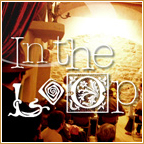PHILADELPHIA SPEECH ELEVATES LEVEL OF DISCOURSE TO PRESIDENTIAL VISION, BAR RAISED FOR RIVALS
Sen. Barack Obama's Philadelphia speech continues to bring new faith to his message of hope and unity. The message has been called "historic" and "presidential", lauded even by conservative pundits as the most important address of the '08 campaign. Observers have speculated widely that his "A More Perfect Union" speech was a tipping point that led to New Mexico governor Bill Richardson's resounding surprise endorsement yesterday.
CNN has reported that as recently as Friday, both Clintons phoned Richardson to ask for his endorsement. He had been spoken of as a likely choice for running mate, should Hillary Clinton become the nominee. In his endorsement of Obama, Richardson called him "a once in a lifetime leader" and called on Democrats to stop fighting among themselves and come together to wage a national campaign under "a new generation of leadership".
The blow to the Clinton campaign is potential severe: Richardson was the rival candidate who was closest to the Clintons, and he made an impassioned case for handing the reins to the popular frontrunnner. He is a friend and watched the Super Bowl with them, but while acknowledging their friendship, he raved about the unique character of Sen. Obama and suggested he would be the most effective and judicious commander-in-chief.
He said in his endorsement address:
My great affection and admiration for Hillary Clinton and President Bill Clinton will never waver. It is time, however, for Democrats to stop fighting amongst ourselves and to prepare for the tough fight we will face against John McCain in the fall.
Meanwhile, the news media are full of reports about the other two candidates either losing ground, or slipping up. Polls show a volatile shift between the top candidates in public opinion, the sands shifting subtly with each new revelation or speech.
Sen. McCain, the "presumptive" Republican nominee, reportedly asserted three separate times this week that Iran (a Shi'a theocracy) was training the group known as 'al-Qaeda in Iraq' (some say a more accurate translation is 'al-Qaeda affiliate of Mesopotamia', a Sunni Arab militant group).
His campaign's defense was a disastrous assertion that the mistake was easy to make and that he has a long career of experience. One of two possibilities arise: he was not thinking clearly and spoke without precise reference to the facts, or he intellectually associates all insurgent groups with the term "al-Qaeda", a lack of nuance that worries policy analysts.
Needless to say, not only supporters of his opponents, but even prominent journalists have said the defense suggests the senator from Arizona is claiming age and fatigue as a defense, hoping that "experience" would be enough to override the fact that he would be the oldest president to begin a first term in the nation's history.
Meanwhile, Sen. Clinton has been feeling increasing pressure from the grassroots of her party as the nation marked the 5th anniversary of the invasion of Iraq, which she supported. Her increasing determination to end the war has led to accusations of switching positions, and her campaign has struggled to persuade that her views have been consistent or her declarations forthright.
Her candidacy has depended heavily on the demographic projections that suggest she will "carry" the Hispanic vote throughout the primaries. But that has not been the case in every state, and Gov. Richardson (the most prominent Hispanic-American politician at the national level) may have done a lot yesterday to warm Obama's candidacy to Hispanic voters.
It was a bad week for Obama as well. The Philadelphia speech won chimes of historic redefining of race issue in America, and polls report overwhelming support for his message, polls projecting the November election outcome are still weakened for Obama in the wake of the firestorm over his former pastor's inflammatory rhetoric.
But perhaps most importantly, if we look at the text and the context of Obama's Philadelphia address, we find that he has effectively raised the bar for his rivals. He continues to campaign, even as both Clinton and McCain are taking the weekend off, and his stature has come more in line, in the public consciousness, with the responsibilities and vision expected of a serving president.
The speech is not merely a sign of leadership, it is a landmark that sets much of the vocabulary for discourse on the subject of race, not merely in the campaign, but in the future direction of American politics. It was a bold if risky move, and it now leaves both Clinton and McCain with little probability of being able to formulate better arguments on the subject.
Washington Post columnist David Broder has written:
What Obama showed in Philadelphia is the potential similarly to inform, educate and inspire people, if he is allowed to fill "the bully pulpit" of the presidency. If that is what people sense, this will indeed make the Philadelphia speech a historic occasion.



















